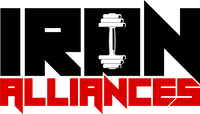
You’re training hard. You’re eating enough. But your progress? Stuck.
Before you overhaul your workout program or add supplements you can’t pronounce, consider this: your recovery routine might be the thing slowing your muscle growth.
Recovery isn’t just what happens between workouts. It’s what allows adaptation from the training you already did. If your recovery is off—even slightly—your gains will lag behind.
During my second powerlifting meet prep, I trained like I was invincible—hitting four heavy compound sessions a week while cutting weight. At first, I felt strong. But two weeks in, my bench regressed, my back cramped constantly, and I couldn’t finish a workout without slamming caffeine.
I wasn’t overtrained. I was under-recovered.
I wasn’t sleeping more than six hours. I wasn’t eating enough for the volume I was doing. I told myself “I’m just tired from the cut”—but the truth is I was burning the candle from both ends.
It took a deload and a brutal ego check to realize: no matter how good the program, it won’t work if your recovery doesn’t match the workload.
Muscle growth doesn’t happen while you lift. It happens after you lift—when your body repairs the stress you imposed on it. Poor recovery means that signal gets interrupted. You stay sore longer, adapt slower, and potentially regress.
7.5–9 hours a night, blackout curtains, and screen limits before bed.
0.7–1g protein per pound of bodyweight, carbs post-lift, and 3–5 feedings a day.
Don’t go hard and high-volume at the same time. Use deloads. Stick with a structured program.
Manage stress. Limit caffeine. Walk daily. Don't overload your nervous system outside the gym.
If you're constantly beat up, try reducing training stress for a week. But long-term? Build sustainable recovery habits or your gains will suffer—even with a perfect program.
Beginners: 24–48 hrs
Intermediates: 48–72 hrs
Advanced: recovery varies (but usually longer)
If you're still sore or weak days after training, your recovery needs work.
Related: The Importance of Recovery in Weightlifting
External: Scientific Recovery Strategies – NCBI